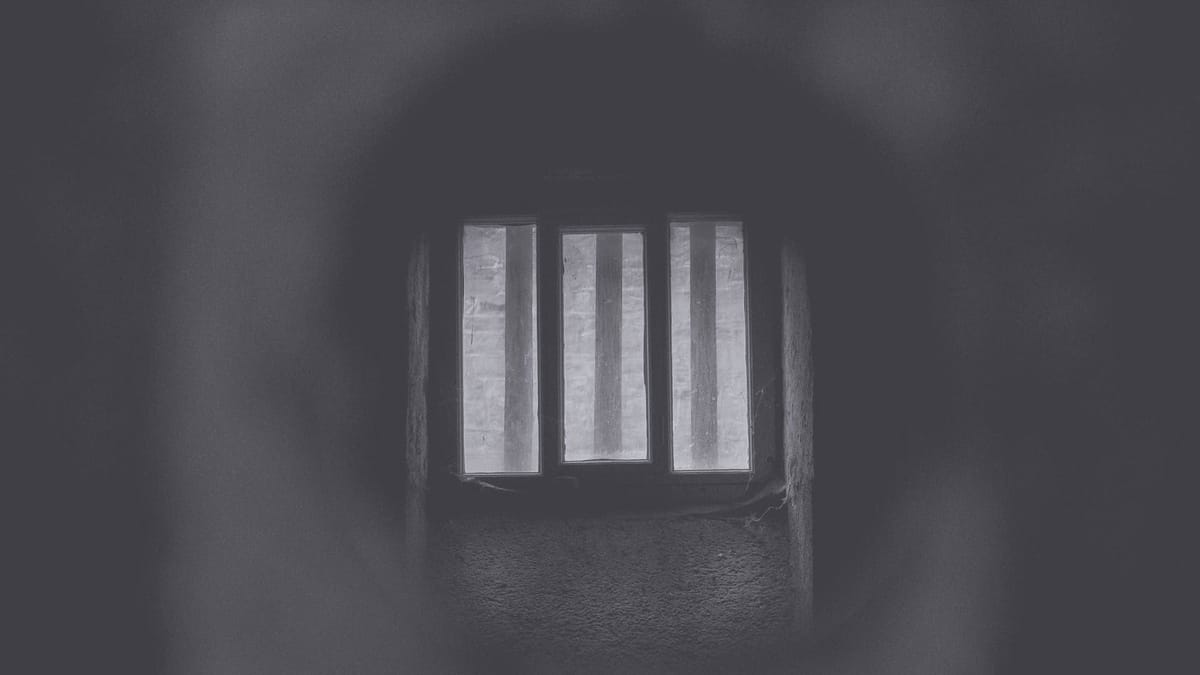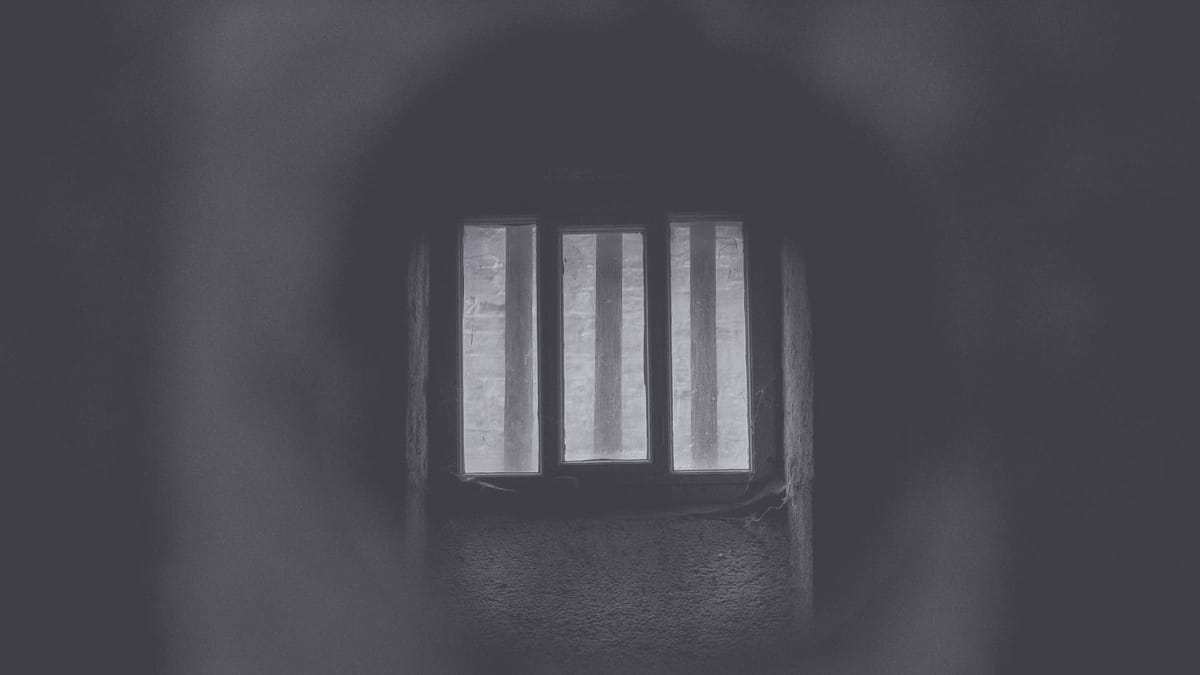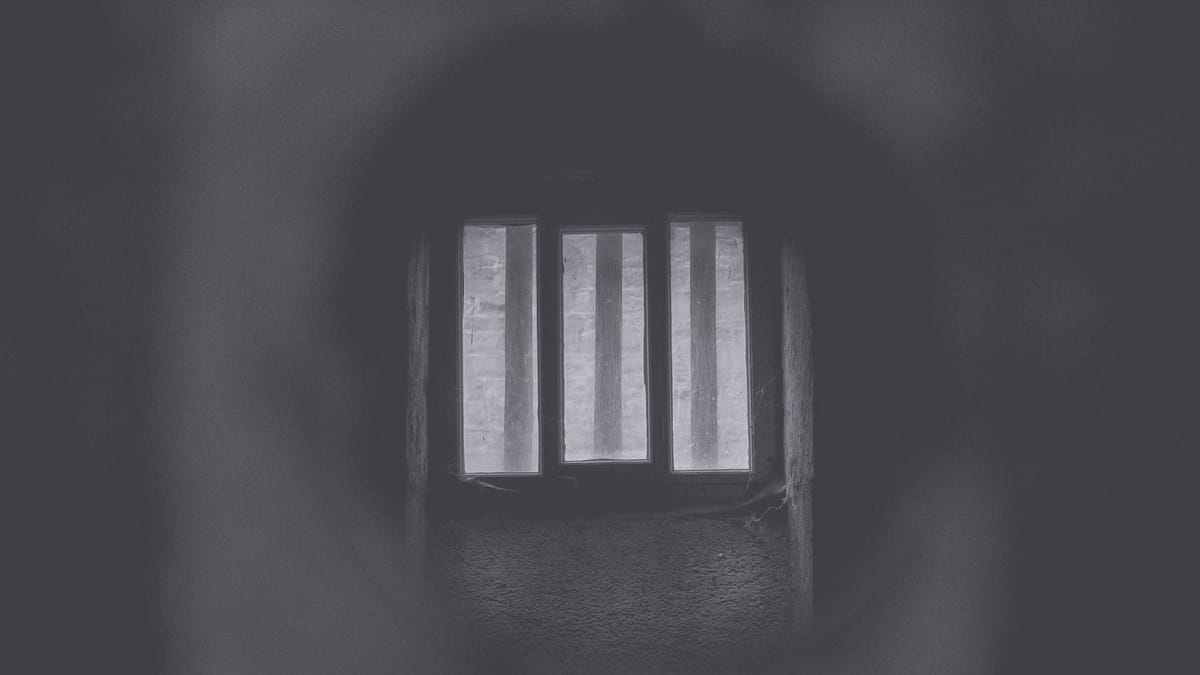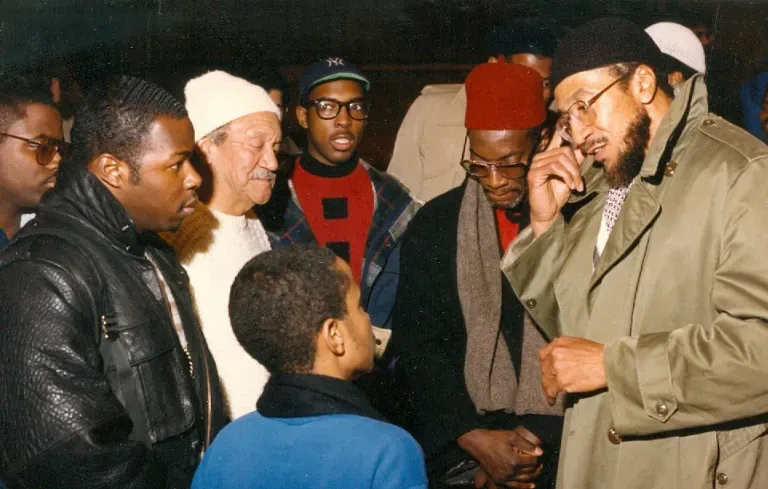This piece is reprinted with permission from the author, Khalid Abdullah, who published the original words in Monthly Political Prisoner of War Roster & Commentary.
Visit TheJerichoMovement.com for Imam Jamil's contact information and to learn more about how you can support our political prisoners.
While many claim the label of revolutionary, very few ever ascend to the level, or station, of a real, true revolutionary in terms of all that it entails.
Revolution, as a process of change, seeks to totally transform society. For such a total transformation to be realized, the revolutionary must, likewise, go through a total transformation. The desires, emotions, outlook, spirit, thought process and worldview, in addition to the actions, ambitions, habits, ideals, indulgences, preoccupations, norms, standards, and values of a person, must all go through a transitional evolution that transforms him or her into a completely new, reconstructed man or woman, in order for one to become a true revolutionary. Then, and only then, can they seriously embark on a course of action that stands the chance of building a new world, free of all the abnormalities, evils, excesses, injustices and wrongs desired to be brought to an end.
Happy revolutionary 82nd birthday to Jamil Al-Amin, formerly H. Rap Brown. Jamil was a leader in SNCC, the Black Panther Party & an Imam in Atlanta. His tireless work in the Black community led him to being framed for killing a cop. Free Jamil & all Political Prisoners pic.twitter.com/hAknKuWvDT
— Kamau Franklin (@kamaufranklin) October 4, 2025
For decades, Imam Jamil Abdullah Al-Amin–widely known as H. Rap Brown–has been among those at the forefront of the struggle for justice in this country. Over a period of time that spans sixty years, he’s been consistent in his active involvement in the struggle in a manner that has few comparisons. Throughout that period, he has been unafraid, unapologetic, and unintimidated in his actions, attitude, and commitment to bring an end to the oppression and tyranny suffered by the poor and oppressed segment of the U.S. population.
Long before The Last Poets and Gil Scott Heron came on the scene, H. Rap Brown was “laying-it-down,” “running lines with rapid-fire-words,” “spitting the truth while educating the youth.” Known to be unmatched in the art of signifying, his sharp wit and quick tongue earned him the name “Rap” at an early age. As he grew older and began developing his own perspective on the world around him, he started using his skills to articulate the problems in America in a manner that appealed to people across the entire strata of society: from the average person on the streets to the most educated. He could “break it down” like very few others could.
After withdrawing from Southern University, Brown moved to Washington, D.C., to join his brother in the Nonviolent Action Group (NAG). NAG was a campus affiliate of the Student Non-Violent Coordinating Committee (SNCC). Most of its members, including future SNCC chairman Stokely Carmichael, attended Howard University. Due to his natural ability to organize both college students and community members, he rose through the ranks to become NAG chairman in 1965.
In March of that year, he joined a delegation of Civil Rights leaders for a White House summit with President Lyndon B. Johnson. During the course of the meeting, Johnson complained about hours-long demonstrations that had prevented his daughters from getting any sleep the previous night. Rap Brown responded by acknowledging the one night his daughters were disturbed, but that
“Black people in the south had been unable to sleep in peace and security for a hundred years!”
He asked what Johnson planned to do about that?
Besides Andrew Young, Imam Jamil is, perhaps, the eldest survivor of all the major figures who were at the helm of the ‘Civil Rights’ and ‘Revolutionary’ struggles of the 1960’s era. He along with Kwame Ture (formerly Stokely Carmichael) were advisors to Dr. Martin Luther King and key organizers amongst the youth and college students who made up large segments of the rank-and-file forces behind the direct action initiatives that were the core of the non-violent demonstrations that proved indispensable to the success of the Civil Rights Movement.
In 1967, H. Rap Brown became a target of the illegal FBI counterintelligence program dubbed COINTELPRO, started by J. Edgar Hoover. In July of the same year he gave an address at a Cambridge, MD rally organized by Civil Rights icon Gloria Richardson. Shortly after his speech, shots rang out, and he was hit with buckshot. Later that night a building was set on fire causing two city blocks and 20 buildings to burn down. Not surprisingly, the blame was put on him. Consequently, the U.S. Congress passed the Civil Obedience Act of 1968 referred to as the “H. Rap Brown Law.”
In 1968, Brown was given an honorary post as Minister of Justice of the Black Panther Party. In 1970 he was placed on the FBI’s “10 Most Wanted List” for not appearing in court for the charges related to the arson and riot in the Cambridge incident. In 1971, he was arrested at the scene of a New York City bar and drug den where he was involved in a “drug eradication” operation to shut it down. After going to trial and being found guilty on attempted robbery charges, he was sentenced to five years. While in prison, he embraced Islam.
Throughout the 1980’s Imam Jamil worked to forge close ties with the leadership of various U.S.-based Muslim organizations. In 1993, the process resulted in the formation of the Islamic Shura Council of North America. This brought together, for the first time, the major Islamic organizations in the country. After a few years, he was elected Amir [leader] of the council.
So, after three decades of commitment, dedication and service to the cause of truth and justice, his selfless contribution and work towards the upliftment of the poor and oppressed culminated in his being placed in a position to spearhead the Islamic Movement in North America. During this same period, he was a key proponent in the treaties and truces established amongst the major street organizations in urban areas all across the country.
Compelled by their fear of his potential to catapult the Islamic Movement in the same manner he helped increase the level of participation and raise the intensity of the Civil Rights/Revolutionary Liberation Movements of the 60’s and 70’s era, the enemies of GOD and man could not stand for such! Determined to prevent it from happening, the American status quo saw the need to neutralize whatever threat they perceived him to represent in their twisted minds. So, they continued the relentless dragnet that began in the 60’s to frame him for some charge that would stick.
In 2002, the Superior Court of Fulton County, GA tried him for 13 counts that included the murder of one sheriff deputy, and the wounding of another, on the evening of March 16, 2000. The following year, on March 14, 2002, a jury found him guilty on all counts, including murder. Falsely accused, wrongfully convicted, and unjustifiably imprisoned for a crime he didn’t commit, this grave injustice was committed as a means of isolating and silencing him. This has been done in a feeble attempt to prevent him from being able to influence the millions of marginalized youth in the U.S.A. who have the potential of organizing into a mass popular movement for real social change.
There is no retirement plan for Black revolutionaries. The Panthers are more popular now than at any point in their history. Yet many of the individuals who formed the Black Panther Party are now struggling to take care of their most basic needs.
The Panthers were dedicated freedom fighters of the Black liberation struggle. Their reward for their dedication was prison, government surveillance, exile, and frequently death. In their most active period, the Panthers were vilified by the media and targeted for destruction by the US government’s FBI-led COINTELPRO operations. Today, those who remain both in and out of prison need our support.
The cooptation of the Panther image cannot be ignored, as the very people who sacrificed so much are forgotten by us. That should not be part of our liberation struggle. With your support, we can show that the movement takes care of its "veterans" and provides support and benefits for those who laid a path that many continue to be inspired by.
Imam Jamil has been languishing in prison for the past 23 years for no reason other than his effectiveness as an organizer, mobilizer, and proven social transformer who, after relocating to Atlanta, GA, led work in transforming the entire West End community into a peaceful, progressive community, wherein the widespread presence of criminal elements and out-of-control drug activity was significantly reduced. Subsequently, he proved effective in uplifting the lives of scores of young Muslim men, women, and children in inner-city communities all around the country. The behind-the-scenes orchestrator' of American society dread to see this sort of transformation occur amongst young people living in its urban centers. This particularly holds true when it comes to those of African, Latino, Native Indigenous and Muslim descent along with their working-class, European counterparts.
His condition and circumstances are indicative of a clear example of the policy of ‘execution by medical neglect’; where the U.S. Bureau of Prisons, under the direction of the status-quo, deliberately ignores the ill health of inmates, in hopes they will die.
Credit: Imam Jamil Action Network (IJAN)
We are told in Qur’an:“Verily never will ALLAH change the condition of a people until they change what is in their own selves).” 13:11
The above condition applies to people on, both, an individual (personal) as well as societal (collective) level. Imam Jamil Abdullah Al-Amin once wrote:
“The struggle is an ongoing process. Many times, people mistakenly identify movement as struggle. Movement is only a phase of struggle. When the first slave rebelled against being a slave, he gave an alternative to slavery that has been built upon until now. That’s struggle, and there have been many movements in the struggle.
It means they come, they serve a purpose, and they go out. We grew to understand that it was a vehicle that moved people from one level of understanding to another level. The Civil Rights Movement had to go out. It’s ridiculous to try to re-live it, but the struggle still goes on.
The mission of a believer in Islam is totally different from coexisting or being a part of the system. The prevailing morals are wrong. Their ethics are wrong. [Modern] Western philosophy… has reduced man to food, clothing, shelter and the sex-drive, which means he doesn’t have a spirit. In Islam we’re not talking about getting the poor to vote.
We’re not talking about empowering people with money. We’re talking about overturning that whole thing man.” [City Paper, January 12, 1992, p 15]
